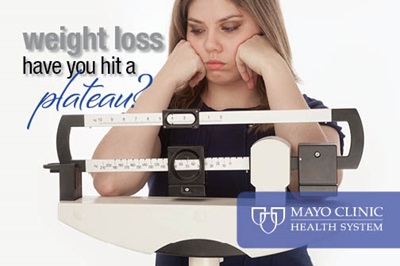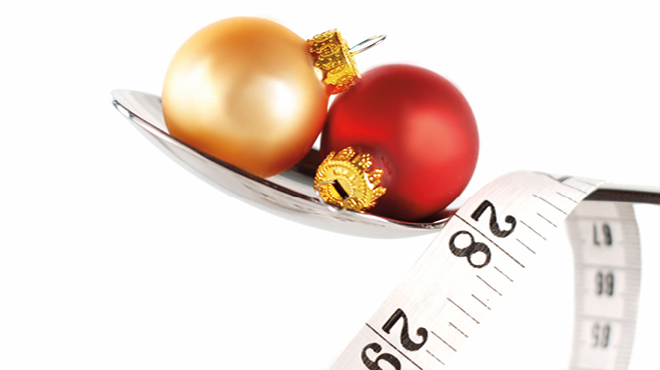Recent Posts
Why has my weight plateaued when I have 50 more pounds to lose?
 There are many challenges and questions that arise when losing weight. Here's one our educators in Weight Management Services hear regularly:
There are many challenges and questions that arise when losing weight. Here's one our educators in Weight Management Services hear regularly:
Yikes! I've lost 20 pounds, which is great, but the past two weeks my weight loss has plateaued, and I still need to lose 50 more pounds. What am I doing wrong? I am following a 1,200-calorie-per-day plan.
You may not be doing anything wrong. During the first two to three weeks of losing weight, a rapid weight loss is normal. You are using your glycogen stores found in muscle and the liver. Because glycogen is made partly of water and when it's used for energy it releases the water, weight loss is mostly water. Then, your body turns to using its fat stores for energy, and you lose body fat. Body fat is lost in the form of ketones, which, upon excretion, also pulls out some water.
You need 10 calories per pound of current weight plus your exercise calories to maintain weight.
Here's how to calculate that based on a weight of 180 pounds:
- Your weight times 10 calories per pound is 1,800 calories.
- If you burn off 300 physical activity calories per day, that's a total of 2,100 calories per day to maintain your weight.
- Your total calories of 2,100 minus 1,200 calories equals 900 calories per day deficit.
- Multiply 900 by seven days a week, and you get 6,300 weekly deficit calories.
- Your weekly deficit calories of 6,300 divided by 3,500 calories in one pound body fat equals 1.8 pounds body fat lost per week.
If you are following the 1,200-calorie-per-day plan and burn off 300 physical activity calories per day, could your body retain 1.8 pounds of water and cover up the 1.8 pounds of body fat lost? Yes. You lost the 1.8 pounds of body fat even though the scale did not change.
About 65% of your weight on the scale is water weight. Your body can easily let go of water weight as well as hold water weight.
Other factors that can cause you to hold water weight include:
- If you increase exercise, especially if muscles are sore; as your body forms its own hot tub and bathes sore muscles in water
- If you're on your period
- If you're taking medications, such as ibuprofen and other NSAIDS and cortisol products
- If you have extra sodium (salt) in your diet
So, here's the bottom line. This work takes a lot of tolerating of the scale. Don't get discouraged. By understanding what causes a weight plateau, you can decide to respond positively and avoid backsliding on your new healthy habits.
Whatever you do, do not give up and revert back to your old eating and exercise habits, because you will gain all the weight back.
Good luck on your journey. You can do this.
By Mayo Clinic Health System staff





